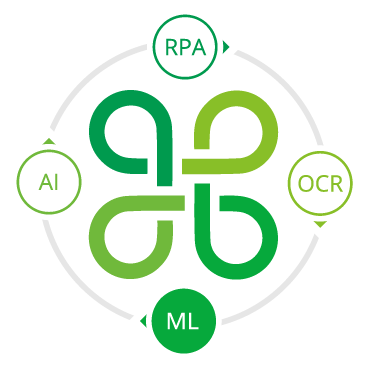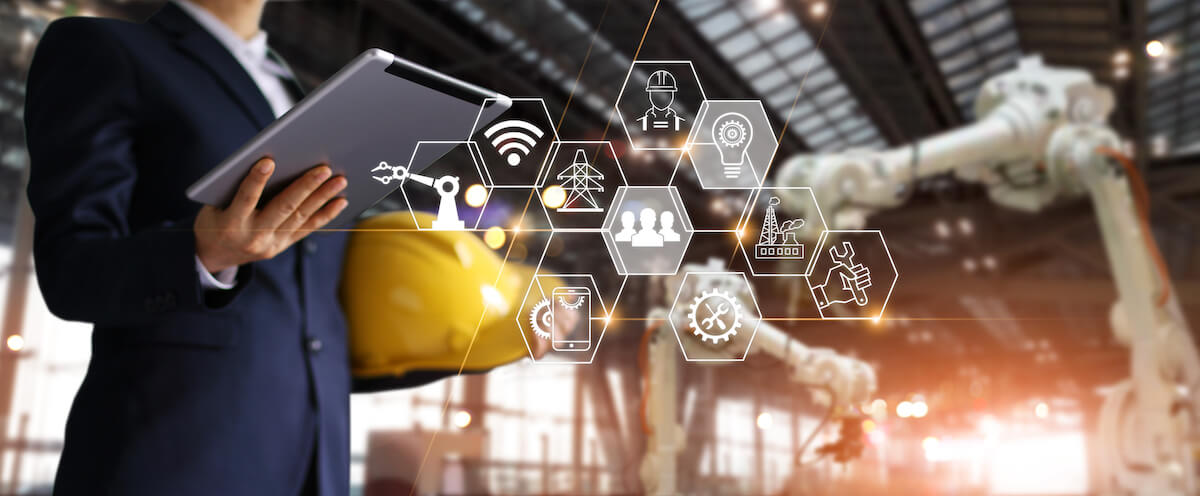Machine Learning (ML)
Achieve Intelligent Automation with the Power of Machine Learning
Make automation smarter with Machine Learning (ML) models to identify patterns and learn from your data, resulting in better-informed decisions. Take advantage of predictive and prescriptive automation so your people spend their time on more meaningful work.
Convinced and ready to get started on your automation journey?
What Is Machine Learning, and How Does It Work?
Machine Learning is a type of Artificial Intelligence (AI) that leverages data and algorithms to train a computer model to recognize targeted patterns. Applying Machine Learning to automation enables you to unlock deep insights and accelerate processes.
Integrating Machine Learning into automations elevates its abilities beyond rules-based processes and structures. As a result, you’ll have a new landscape of scenarios to improve with automation.
Machine Learning in automation starts with a computer program deciding what to do based on information you provide. It seeks out patterns in the data and tries to make predictions based on them. The program then checks if the predictions are correct and uses those results to improve decision-making the next time. The process repeats until predictions become highly accurate, hence the term “learning.”
Pre-trained models are available to support common scenarios such as invoice extraction, image recognition, or fraud detection. You can also develop custom models to meet your specific criteria.
For Machine Learning to continue improving accuracy, continuous retraining as more data becomes available is essential.

The steps to take to inject Machine Learning into automation include:
- Identifying a pre-trained model that you want to use or creating a custom model
- Deploying that Machine Learning model into your process and training it to start making predictions
- Creating a confidence threshold where digital robots either assume these predictions and execute them downstream to processes or deliver low-confidence results to humans for additional validation
- Refining the model using the validated data
- Improving continuously with supervised or semi-supervised training; unsupervised training presents some risks and requires expert analysis to ensure a successful outcome

What Can You Do with Machine Learning?
Machine Learning has been an innovative technology for decades, but it’s quickly becoming essential for forward-thinking businesses that want to keep pace with the competition. Leveraging Machine Learning in your automations will separate you from competitors who aren’t using Intelligent Automation (IA).
Machine Learning involves multiple techniques that can process many types of data in various formats, including structured, semi-structured, and unstructured. It allows computer systems to ascertain meaning, identify patterns, and answer questions.
Some common use cases include:
- Intelligent Document Processing
- Fraud Detection
- Computer Vision (Facial Recognition, Image, or Video Analysis)
- Natural Language Processing (NLP)
- Medical Diagnosis and Patient Monitoring
- Sales or Demand Forecasting
What Are the Benefits of Machine Learning?
Machine Learning is a critical component of Intelligent Automation. When ML is part of your automations, you can realize these benefits:
- Productivity enhancements
- Operational efficiency improvements
- Acceleration of digital transformation
- Enhanced accuracy at volume
- Faster time to insight
- Ability to work with more data formats
- Easier scaling
- Complete visibility
- Quicker ROI
Machine Learning in Action
Automation Resources Hub
Downloadable Resources
Guides, eBooks, Infographics, White Papers, and Case Studies
Webinars
Browse by live and on-demand webinars across a wide variety of IA topics
Thought Leadership Articles
Your source for RPA and Hyperautomation thought leadership and education



